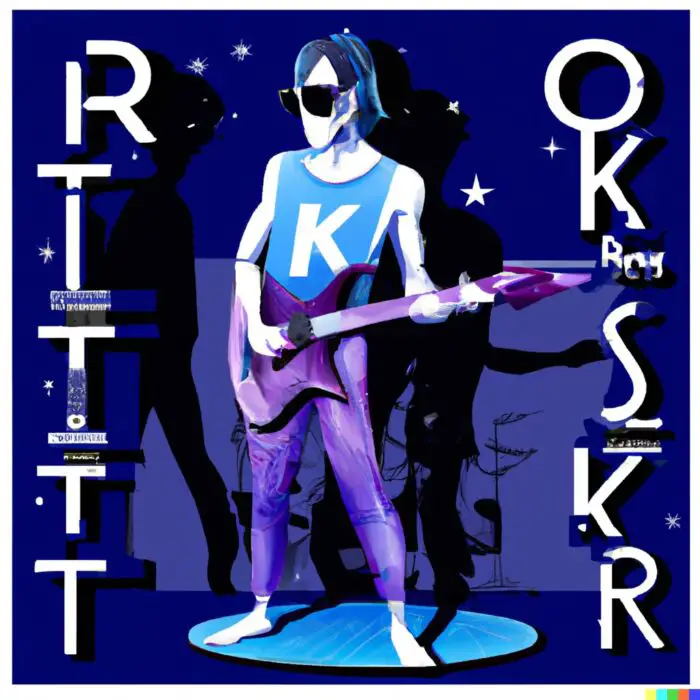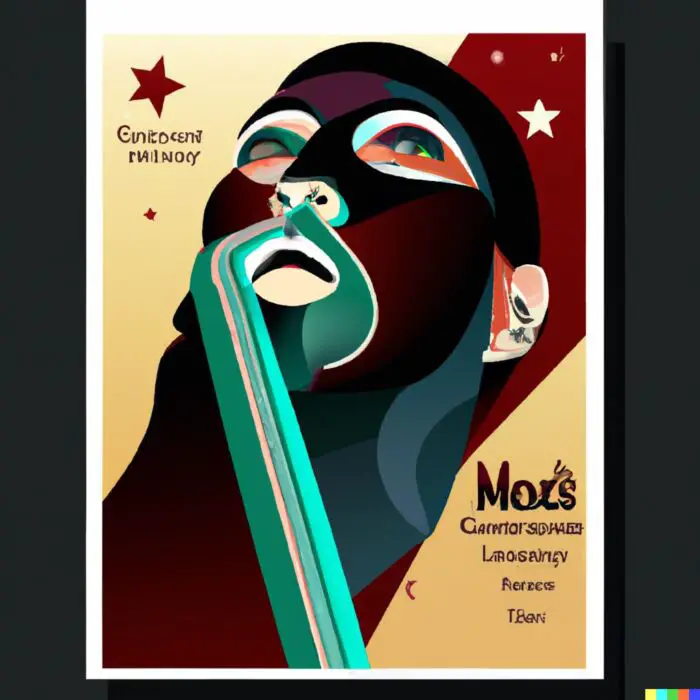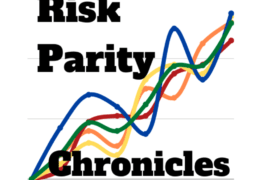Connecting with savvy advisors on Twitter has been one of the great unexpected benefits of running Picture Perfect Portfolios.
I had fully anticipated just stalking my “investing heroes” and interacting with other amateur investors.
Today we’re fortunate to have Mark McGrath join us as part of the “How I Invest” series to discuss investing strategies and financial planning.
Mark’s a legend in many regards but I’m most impressed by his informative tweets on a variety of financial subjects/topics aside from just portfolio optimization.
https://x.com/MarkMcGrathCFP/status/1633513632574377984
I’m the first to admit I get sucked into the rabbit-hole of obsessing almost exclusively about my portfolio but there are a plethora of other subjects worth considering when it comes to effective wealth management.
https://x.com/MarkMcGrathCFP/status/1632789715966623744
Fortunately for us curious investors, Mark decided to hit the pause button on his rock star aspirations to help us all become more informed on a wide variety of financial planning matters.
Without further, ado let’s turn things over to Mark!

Meet Mark McGrath: From Rock Star Aspirations To Helping Canadian Physicians

I planned to be a famous rock star, but it didn’t pan out.
I went to university with the intention of becoming a dentist since my dad told me that would be a great idea.
One day a friend introduced me to the Canadian Securities Course, and I fell in love.
I quit university on the spot to study personal finance and investment management full-time, and here I am about 15 years later.
Over the past decade, I’ve worked primarily with Canadian physicians and business owners on financial planning, including tax, insurance, retirement, investment, and estate planning.
I’m a bit of a planning geek, so I also spend a lot of my free time reading and writing about it.
But when I need a break, I occasionally pick up my guitar and remind myself why my dream of being a rock star was destined to fail.

How I Invest with Mark McGrath: Factor Focused Portfolios

Hey guys! Here is the part where I mention I’m a travel content creator! This “How I Invest” interview is entirely for entertainment purposes only. There could be considerable errors in the data I gathered. This is not financial advice. Do your own due diligence and research. Consult with a financial advisor.

These asset allocation ideas and model portfolios presented herein are purely for entertainment purposes only. This is NOT investment advice. These models are hypothetical and are intended to provide general information about potential ways to organize a portfolio based on theoretical scenarios and assumptions. They do not take into account the investment objectives, financial situation/goals, risk tolerance and/or specific needs of any particular individual.
From Get Rich Quickly To Sensible Factor Focused Portfolios
Who were your greatest influences as an investor when you first started to get passionate about the subject?
How have your views evolved over the years to where you currently stand?
If you had to recommend a handful of resources (books, podcasts, white-papers, etc) to bring others up to speed with your investing worldview what would you recommend?
Like many, it started when I read The Intelligent Investor by Benjamin Graham. I think I was around 25 then, and it was my first real foray into markets and investing.
When I was younger, I always looked to get rich quickly, and this book opened my eyes.
I lent my copy to a friend and never got it back.
When I first started as an advisor, I was trained by the institution I worked for to sell their products.
Of course, they told me their products were the best, and I believed them.
All my colleagues and superiors were using them too, so they must have been good right?
And I think a lot of advisors are trained the same way.
It wasn’t until around 2013 that I started researching portfolio management, eventually completing the Chartered Investment Manager designation in 2015.
That’s a Canadian thing – your US readers probably haven’t heard of it, but it’s sort of like a light version of the first level of the CFA program.
Around this time, I stumbled on the Canadian Couch Potato blog, written primarily by Dan Bortolotti.
My mind was blown.
Dan went through all the data on active management and compared it to index investing.
It sort of shook me, seeing that none of my peers were using index funds then.
I did a full about-face with my clients and went to 100% index funds then and there.
Then in 2018, a podcast called the Rational Reminder came out.
This taught me about the Fama/French five-factor model and factor investing in general.
Since then, I use portfolios tilted to small-cap, value, and quality stocks.
I also use some private asset funds in some cases, but the core of my client portfolios are based on the five-factor model.
The Rational Reminder is still the best podcast on investing and personal finance, in my opinion.
They reference a lot of academic papers on portfolio management from various sources, so I do my best to read through some of those when I can.
source: Mark McGrath on YouTube

The Portfolio Is Simply One Component Of Financial Planning
Aside from investing influences, what real life events have molded your overall views as an investor?
Was it something to do with the way you grew up?
Taking on too much risk (or not enough) early on in your journey/career as an investor?
Or just any other life event or personality trait/characteristic that you feel has uniquely shaped the way you currently view yourself as an investor.
Education.
Travel.
Work Experience.
Volunteering.
A major life event.
What has helped shape the type of investor you’ve become today?
My dad got me into it.
He was a successful small business owner, and he taught me to read stock quotes in the newspaper when I was like 12.
I remember they used to quote prices in fractions back then.
I was disqualified from an investing competition in elementary school because my dad and I picked some microcap stock while everyone else picked Disney, Coca-Cola, etc.
Our returns for the month were something like 400%, so the teacher just gave the prize to the second-place kid.
Looking back, we just got lucky.
But I still should have won.
Over the years, I’ve realized that the portfolio is simply one component of financial planning.
The greatest portfolio in the world doesn’t matter if you can’t stick with it and avoid behavioural mistakes.
So I try to design resilient portfolios that don’t need to be tinkered with and spend little time talking about markets and investments with my clients after their portfolio is initially set up.

Beware Of The Madness Of Crowds + Learn To Ignore Noise
Imagine you could have a three hour conversation with your younger self.
What would you tell the younger version of yourself in order to become a better investor?
I would tell myself not to chase returns, beware of the madness of crowds, have patience, and learn to ignore the noise.
While I don’t think an index fund portfolio is the optimal portfolio, for many people, it’s pretty close.
I would tell myself to buy the total global market for as cheap as possible, always keep buying, never look at it to check performance, and then do something fun with my life.
That simple wisdom would give people an incredible head start if they implemented it early in their lives.

Factor Focused Portfolios: Build A Total Market Portfolio
Let’s pop the hood of your portfolio.
What kind of goodies do we have inside to showcase?
Spill the beans.
How much do you got of this?
Why did you decide to add a bit of that?
If you’d like to go over every line-item you can or if would be easier to break your portfolio into categories or quadrants that’s another route worth considering.
When do you anticipate this portfolio performing at its best?
As I mentioned, I’m a big fan of factor portfolios.
I primarily use Dimensional Fund Advisors for this, but I am also exploring adding some other products.
DFA makes up 50-70% of my portfolios.
Here in Canada they have global portfolios of various risk levels, comprised of different mixes of global stocks, bonds, and real estate.
They are one-fund solutions for around 35 basis points.
Simple, cheap, rebalances, and gives me factor exposure.
I know their factor tilts aren’t huge, but I’m okay with that.
For most of my clients, the concept of indexing alone is a vast improvement from how they previously managed their money.
Explaining factor investing in simple terms is complex, and dealing with volatility and tracking error is a struggle.
So DFA is a great starting point.
I add private real estate, private loans, and private equity for the right client.
My goal here is to try and build a total market portfolio.
The market capitalization of non-public investable assets is in the trillions, and adding these assets to portfolios might add additional sources of risk and return.
I know these products suffer from what Cliff Assnes has coined “volatility laundering”.
But I’m straight with my clients about it.
I tell them, “look – I know this fund never seems to go down, but that’s an illusion.
It’s probably to your benefit since it will make it easier for you to sit through a bad market without panicking, but there’s no magic portfolio that only goes up”.
So overall, for a growth-oriented client with a high risk tolerance and risk capacity and a long time horizon, they might be around 55% DFA Global Equity, 15% global private equity, 15% North American real estate, and 15% North American mortgages and loans.
My next task is to find global real estate and loans that I can add to portfolios in a cost-effective way.
source: Mark McGrath on YouTube
![]()
With Factor Investing, You Need To Tolerate Tracking Error
What kind of investing skills (trading, asset allocation, investor psychology, etc) are necessary to become good at the style of investing you’re pursuing?
Is there a certain type of knowledge, experience and/or personality trait that gives one an advantage running this type of portfolio?
With factor investing, you need to tolerate tracking error.
You’re intentionally saying you want to be different from the market, so you must be okay when your performance differs from the market.
Sometimes you’re doing better, and sometimes worse.
But if you remember why you’re investing this way, it helps.
It’s a bit tougher to explain this to clients who are novices when it comes to investing, but education is a massive part of my service to clients.
I like to say, “once you realize that nobody can predict asset prices in the short term, investing gets much easier.”
The only reason I have any idea what my portfolio performance has been over the past couple of years is that I invest my money in the exact same manner that I invest my clients’ money.
So when I see their performance, I know mine is in the same ballpark.
But otherwise, I never check my portfolio since I don’t need it for 20+ years.
You must be comfortable with that and confident in your strategy to pull this off in the long run.

No Secret Sauce: Asset Allocation and Simple Risk Management
What would be a toned down version of your portfolio?
Something that’s a bit watered down.
Conversely, what would be a more aggressive version of your portfolio, if someone were willing to take on more risk for a potentially greater reward?
Simplicity is one of my core investing values.
For a more aggressive investor, we’re all equity and real estate.
For a more conservative investor, we’re more fixed-income.
I use the DFA Global portfolios to implement this – so instead of using their Global Equity fund, I’ll use their 60/40 fund, for example.
That’s it – no secret sauce, just asset allocation and simple risk management.
source: Mark McGrath on YouTube

The Ability To Cut Through The Noise
What do you feel is your greatest strength as an investor?
What is something that sets you apart from others?
Conversely, what is your greatest weakness?
Are you currently trying to address this weakness, prevent it from easily manifesting or simply doubling down on what it is that you’re great at?
I think my greatest strength is the ability to cut through the noise.
The number of clients I have bringing me YouTube videos from dividend investing or crypto marketers is at an all-time high.
I’m pretty good at going back to the research and data and forming an opinion from there.
I also don’t really care about being right about anything, except to the extent that I’m using the best strategies that are backed up by research.
If I learn something new, I have no problem saying I was wrong or there’s a better way.
I don’t take it personally, and investing isn’t my identity.
Better research comes out?
Fantastic, let’s use it.
Otherwise, I don’t get FOMO about missing returns in anything and don’t particularly care what the market does in the short term.
I didn’t get caught up in the hype around Bitcoin, Tesla, or ARKK for example.
As for weaknesses – many would say it’s my disdain for dividend-focused strategies since, apparently, that’s free money.
But in all honesty, it’s probably shiny object syndrome.
I have a rule that I never say no to a conversation, and that’s served me incredibly well over the years.
But it also means I’m an easy target for wholesalers, so I talk to dozens of different fund different companies about their strategies each year.
And I love helping people, so sometimes I feel compelled to use a product simply because the wholesaler was nice.
I don’t end up using them, but I usually feel bad about it.

Managing Other Areas Of Finance That Really Moves The Needle
What’s something that you believe as an investor that is not widely agreed upon by the investing community at large?
On the other hand, what is a commonly held investing belief that most in the industry would agree with that rubs you a bit differently?
It’s got to be dividends. I’m completely agnostic.
In fact, I’d prefer not to receive a dividend, all things held constant since I simply don’t want the income and the tax bill associated with it.
I talk to people all the time focused on their portfolio yield with no consideration for their annualized returns.
And they don’t see a problem with it because they don’t think these dividend stocks can ever disappear, so they’re only focused on the amount of income they produce.
The data and research disagree with them, but they usually hand-wave it away.
As for what the industry believes in that I don’t – stock picking.
I think too many advisors believe that the value they bring to their clients revolves solely around picking winners, and I think that’s purely based on luck.
If you spend all your time trying to pick stocks, you’re leaving little time for more important things like helping clients achieve their goals and managing other areas of their finances that really move the needle.

I Won’t Implement Anything I Don’t Understand And Can’t Explain To Clients
What’s a subject area in investing that you’re eager to learn more about?
And why?
If you knew more about that particular topic would it influence the way you’d construct your portfolio?
It would if there was compelling peer-reviewed research to back it up.
I’ve been learning more about trend and momentum, following folks like you and others mainly on Twitter.
Corey Hoffstein has some fascinating work that right now is beyond my comprehension, so I’d like to dig into that a little bit more.
I won’t implement anything I don’t understand and can’t explain to clients, so it takes me a while to come around to a new strategy.

Avoiding Lottery Tickets And Get Rich Quick Schemes
What would be the ultimate anti-Ryan Telford portfolio?
Something you’d never own unless you were duct-taped to a chair as a hostage?
What about this portfolio is repulsive to you?
Conversely, if you were forced to Steel Man it, what would potentially be appealing about the portfolio to others?
What is so alluring about it?
A third each in cryptocurrency, Tesla, and ARKK.
They are lottery tickets, and people love the idea of getting rich quickly from a huge payoff.
Oh, maybe I’d throw in some dividend stocks and covered call ETFs so I could do YouTube videos on how much income my portfolio generates.
https://x.com/MarkMcGrathCFP
Connect With Mark McGrath
I’m most active on Twitter, but my handle is the same across Twitter, LinkedIn, and Instagram – @MarkMcGrathCFP.
Twitter: @MarkMcGrathCFP
LinkedIn: @MarkMcGrathCFP
Instagram: @MarkMcGrathCFP
I post daily on Twitter, usually about financial planning for Canadian business owners and physicians.

Nomadic Samuel Final Thoughts
I want to personally thank Mark for taking the time to participate in the “How I Invest” series by contributing thoughtful answers to all of the questions!
If you’ve read this article and would like to be a part of the interview series feel free to reach out to nomadicsamuel at gmail dot com.
That’s all I’ve got!
Ciao for now!
Disclaimer: Mark McGrath is a Wealth Advisor with Wellington-Altus Private Wealth (WAPW). The information contained herein is provided for informational purposes and should not be construed as financial, legal, tax or investment advice. Please consult a financial advisor and tax professional with respect to your personal financial situation and objectives. WAPW is a member of the Canadian Investor Protection Fund and the Investment Industry Regulatory Organization of Canada.
Important Information
Comprehensive Investment Disclaimer:
All content provided on this website (including but not limited to portfolio ideas, fund analyses, investment strategies, commentary on market conditions, and discussions regarding leverage) is strictly for educational, informational, and illustrative purposes only. The information does not constitute financial, investment, tax, accounting, or legal advice. Opinions, strategies, and ideas presented herein represent personal perspectives, are based on independent research and publicly available information, and do not necessarily reflect the views or official positions of any third-party organizations, institutions, or affiliates.
Investing in financial markets inherently carries substantial risks, including but not limited to market volatility, economic uncertainties, geopolitical developments, and liquidity risks. You must be fully aware that there is always the potential for partial or total loss of your principal investment. Additionally, the use of leverage or leveraged financial products significantly increases risk exposure by amplifying both potential gains and potential losses, and thus is not appropriate or advisable for all investors. Using leverage may result in losing more than your initial invested capital, incurring margin calls, experiencing substantial interest costs, or suffering severe financial distress.
Past performance indicators, including historical data, backtesting results, and hypothetical scenarios, should never be viewed as guarantees or reliable predictions of future performance. Any examples provided are purely hypothetical and intended only for illustration purposes. Performance benchmarks, such as market indexes mentioned on this site, are theoretical and are not directly investable. While diligent efforts are made to provide accurate and current information, “Picture Perfect Portfolios” does not warrant, represent, or guarantee the accuracy, completeness, or timeliness of any information provided. Errors, inaccuracies, or outdated information may exist.
Users of this website are strongly encouraged to independently verify all information, conduct comprehensive research and due diligence, and engage with qualified financial, investment, tax, or legal professionals before making any investment or financial decisions. The responsibility for making informed investment decisions rests entirely with the individual. “Picture Perfect Portfolios” explicitly disclaims all liability for any direct, indirect, incidental, special, consequential, or other losses or damages incurred, financial or otherwise, arising out of reliance upon, or use of, any content or information presented on this website.
By accessing, reading, and utilizing the content on this website, you expressly acknowledge, understand, accept, and agree to abide by these terms and conditions. Please consult the full and detailed disclaimer available elsewhere on this website for further clarification and additional important disclosures. Read the complete disclaimer here.





